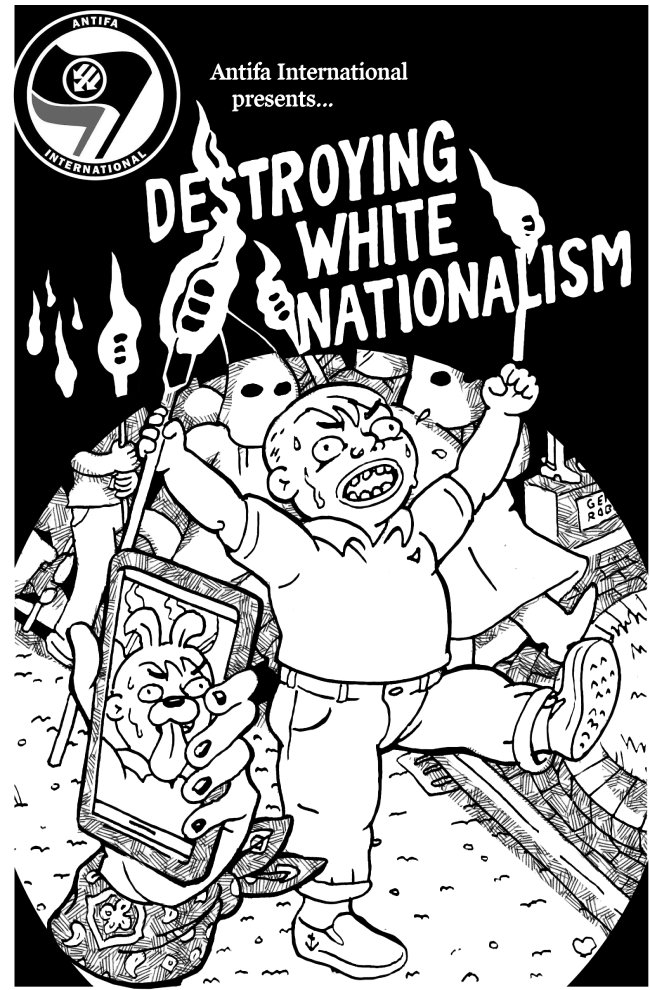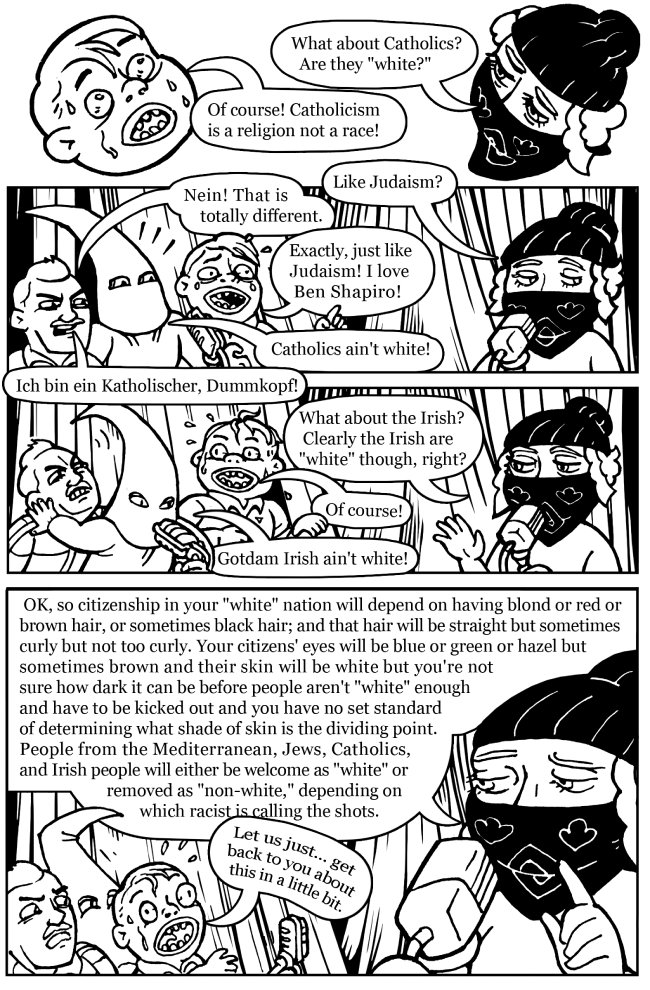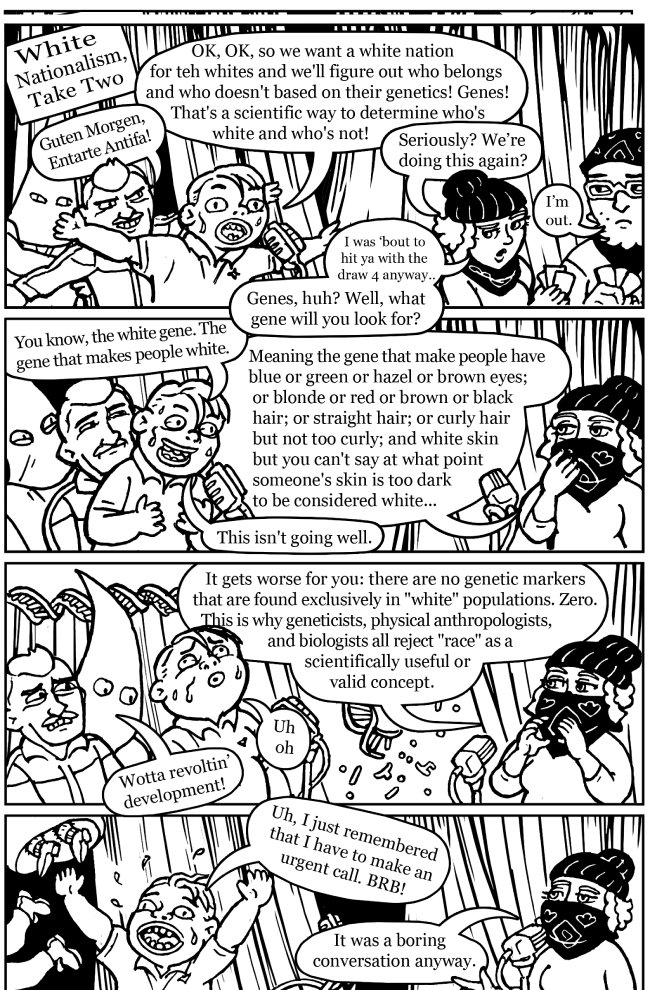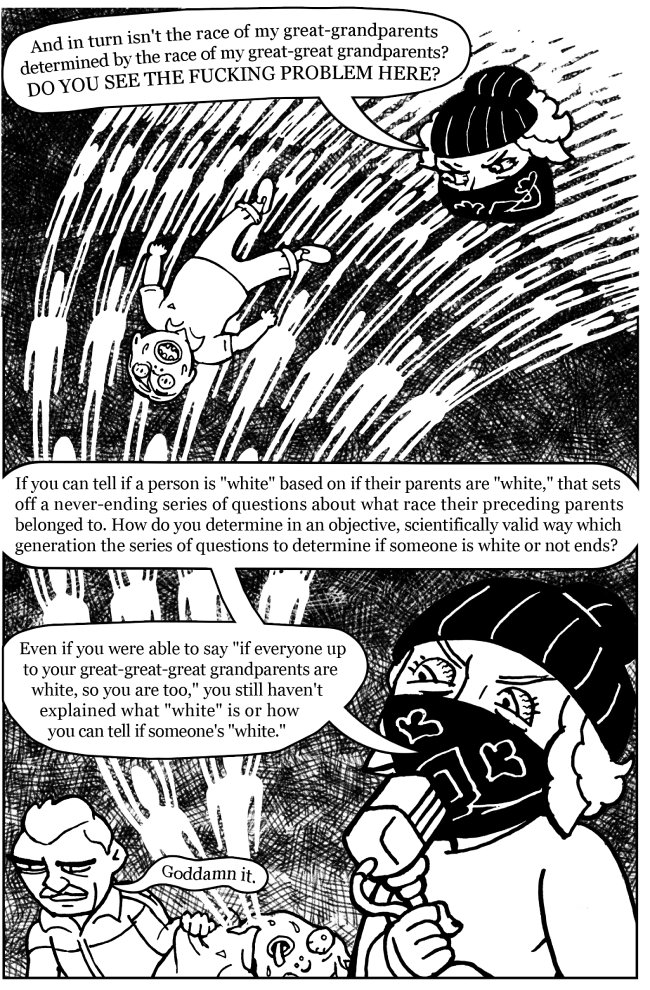On my most recent May Flowers post, I commented with AI-assisted illustrations for the entries. The last m’flower was a poem written in first person, that included a section wherein I blast on some creepy bugs with guns. So my illustration was chosen from a set of midj images like these…

 And how did I make these greatamericansatanesque clowns emerge from an AI mo’ chine? By feeding it this terrible screen capture from my rap debut video (at right). Like many artists, I find the image of myself – or the idea of the image – to be intellectually interesting. It makes me feel some kinda way, like who is this creature that is I?
And how did I make these greatamericansatanesque clowns emerge from an AI mo’ chine? By feeding it this terrible screen capture from my rap debut video (at right). Like many artists, I find the image of myself – or the idea of the image – to be intellectually interesting. It makes me feel some kinda way, like who is this creature that is I?
The way it works is called “image prompting.” Your prompt in an AI art program is the words you use to tell the AI what you want. When it is just words, it’s referencing the tagging system of the program. When it’s an image, well, I don’t really know what it’s doing. AI art is the work of a “denoising algorithm” that uses statistical probability to place pixels, with those odds altered by the prompt. There’s an explanation out there for how image prompting works that I ain’t bothered to dig up because I don’t care that much. I figure it’s one of two things: Genuinely using the image to nudge probabilities, or just reverse engineering the image into a verbal prompt and using the undisplayed verbal prompt to control the AI.
So welcome to my jungle. I gots fun and games. Wherein the fun is masturbatory omphaloskepsis and the games is art that nobody asked for. I’d lead in with the cliche of “you asked for it” but you very much did not. I hope you get a chuckle or divertingly creepy vibe from the display. Proceeding thus,
This first set was just putting my image as the prompt and running my “pretty girl” style filter over it. I’ve posted these girls in comments somewhere, I kinda love ’em. But are they mees from another mother? Would this love be a thought crime against nature?
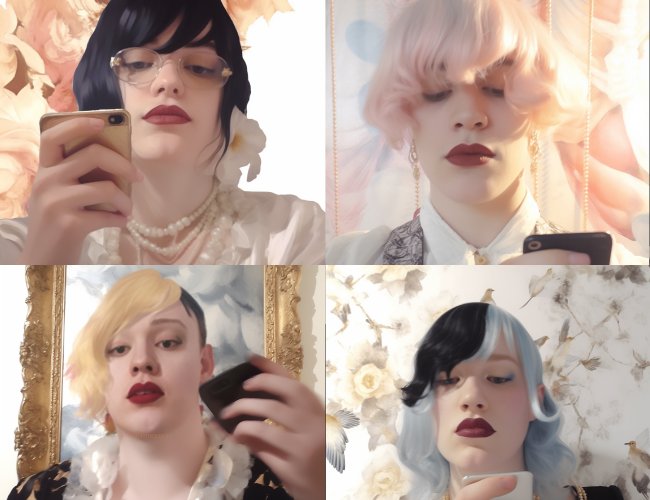
Another time I mashed my selfie up with the “glitchcore” AI art from that one post, and again, I did note them in the comments. It’s like dollar-store replicant daryl hannahs. Getting a little less transgenda lookin’, which is a shame, from my point of view. I think passing is a scam meant to drive trans suicide rates, like dieting is for… everybody at this point. Whatever.

This one was mixing my selfie with an image derived from a crappy old version of stable diffusion, 2022-style. You can see that image on my bloge in a Spooktober post. Closed eyes are the sensuousness, when equipped with horse eyelashes. Gothique.
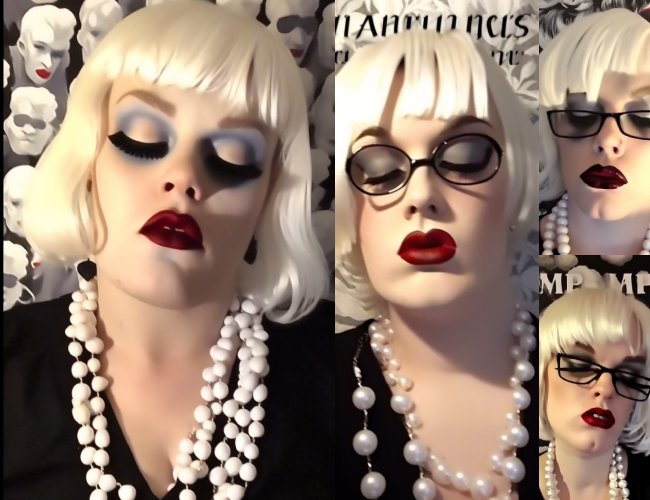
The next set is the least passing trans gals in human history, courtesy of mashing myself up with a random pretty-ass 19th century painting lady. Think she was a nymph or something, don’t care enough to dig up the original pic. Again, I love ’em.

What’s the most obvious lady pic in human history to mash oneself up with? The Mona Lisa. This produced a character that looks very much like NaNoWriMo dot org’s most imperious mod of yore, so I viking hatted her ass, and it was a wild success.
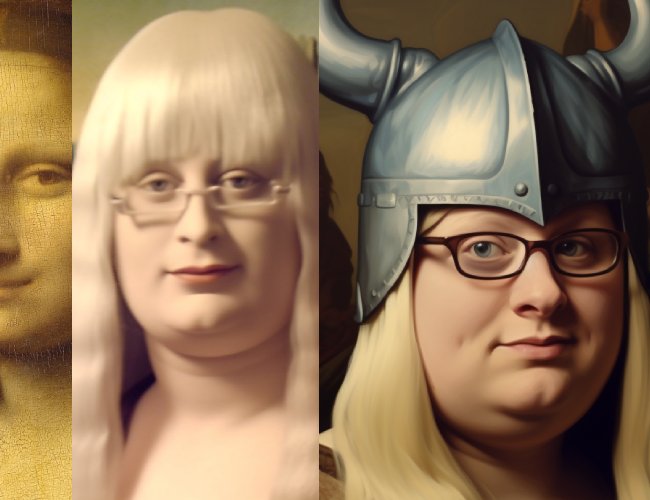
Remember that part in Blue Velvet where Dean Stockwell lipsyncs to Roy Orbison’s In Dreams? Fucking epic. This was mashing my selfie up with him. Kinda reminds me of Phil Hartman, aww.

Here is where things got really interesting for me. I used a strange painting of Salome in a Babylonian throne room. The style might be called expressionist or symbolist, I think, and had a fuzzy and drippy effect almost like you were seeing the scene through rain – despite the golden glow. Cool piece, again, I forget whodunit, but I was very intrigued to see the AI interpret that as motion-blurred degraded VHS! This is me as tour guide at a desanctified cathedral or castle…

I took that set and mashed it up with an image of a demon from a funky grimoire, and a cool pic of the dudes from The Damned, resulting in these fucked up Marilyn Manson hillbillies. Very amusing.
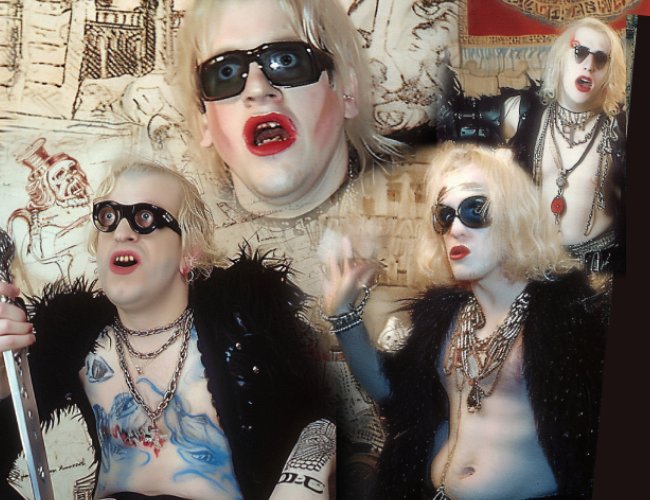
Leaving out the cathedral set to only have my selfie mixed with the demon, we get… wigbeard! Amazing. I love it. This is also a good example of the strange things that happen when you mix a photo and a drawing in AI art.

The first image below on the left is actually from artbreeder, which is kind of a fun website. I added some human “DNA” to an image of a cute puppy, creating an abominable bog mummy standup comedian. On the right you can see what comes of that mixed with my selfie – some kind of queer grunge bassist who wasn’t cool enough to OD.

Mixing my selfie with a beautiful AI pic yielded these VC Andrews -styled queer cuties, who I mixed with some other stuff to get the characters from this other one. Anyway, by my affectionate words you may be starting to get an idea of which ones I find genuinely appealing. Ignoring the fingers, of course.

The one on the left below was mashing myself up with the edgy angel from the cover of the Kult TTPRG, and to my great amusement, it became some kind of hair metal groupie from the late eighties. Mashing her up with another image full of homunculi yielded this bumper crop of selfcestuous cultist little people.

Those lil’ gals became bigger and gayer and sleepier in subsequent iterations.
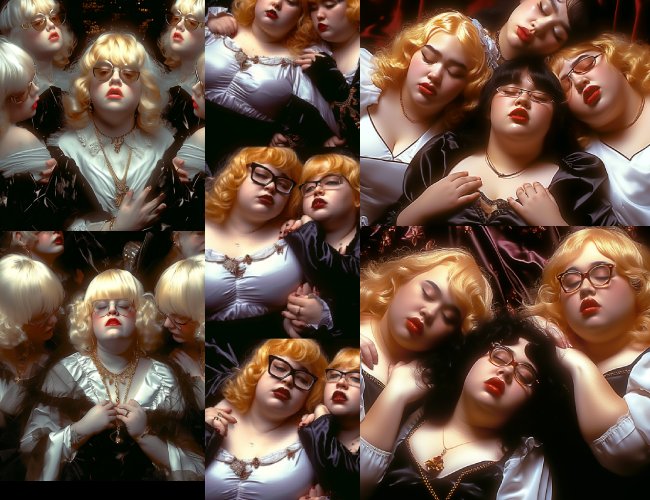
it’s a good time, but has this narcotic quality about it… soporific… think im gonna fall asleep now… gnite.
–





